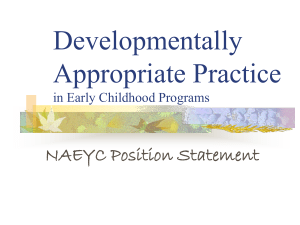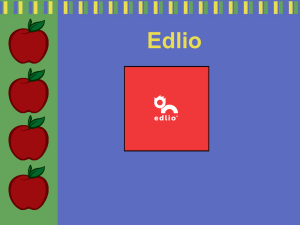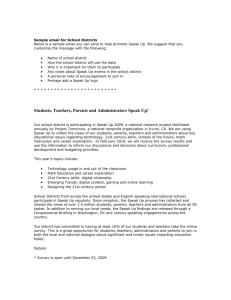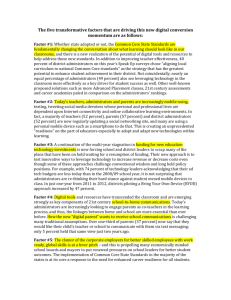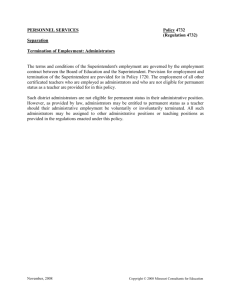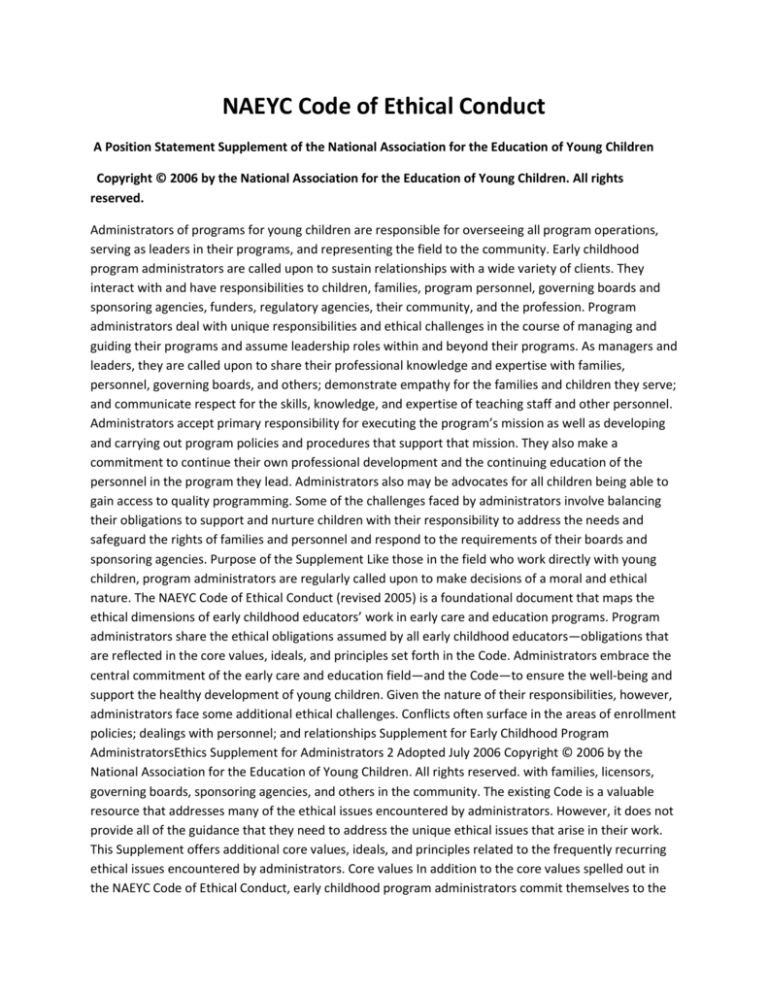
NAEYC Code of Ethical Conduct
A Position Statement Supplement of the National Association for the Education of Young Children
Copyright © 2006 by the National Association for the Education of Young Children. All rights
reserved.
Administrators of programs for young children are responsible for overseeing all program operations,
serving as leaders in their programs, and representing the field to the community. Early childhood
program administrators are called upon to sustain relationships with a wide variety of clients. They
interact with and have responsibilities to children, families, program personnel, governing boards and
sponsoring agencies, funders, regulatory agencies, their community, and the profession. Program
administrators deal with unique responsibilities and ethical challenges in the course of managing and
guiding their programs and assume leadership roles within and beyond their programs. As managers and
leaders, they are called upon to share their professional knowledge and expertise with families,
personnel, governing boards, and others; demonstrate empathy for the families and children they serve;
and communicate respect for the skills, knowledge, and expertise of teaching staff and other personnel.
Administrators accept primary responsibility for executing the program’s mission as well as developing
and carrying out program policies and procedures that support that mission. They also make a
commitment to continue their own professional development and the continuing education of the
personnel in the program they lead. Administrators also may be advocates for all children being able to
gain access to quality programming. Some of the challenges faced by administrators involve balancing
their obligations to support and nurture children with their responsibility to address the needs and
safeguard the rights of families and personnel and respond to the requirements of their boards and
sponsoring agencies. Purpose of the Supplement Like those in the field who work directly with young
children, program administrators are regularly called upon to make decisions of a moral and ethical
nature. The NAEYC Code of Ethical Conduct (revised 2005) is a foundational document that maps the
ethical dimensions of early childhood educators’ work in early care and education programs. Program
administrators share the ethical obligations assumed by all early childhood educators—obligations that
are reflected in the core values, ideals, and principles set forth in the Code. Administrators embrace the
central commitment of the early care and education field—and the Code—to ensure the well-being and
support the healthy development of young children. Given the nature of their responsibilities, however,
administrators face some additional ethical challenges. Conflicts often surface in the areas of enrollment
policies; dealings with personnel; and relationships Supplement for Early Childhood Program
AdministratorsEthics Supplement for Administrators 2 Adopted July 2006 Copyright © 2006 by the
National Association for the Education of Young Children. All rights reserved. with families, licensors,
governing boards, sponsoring agencies, and others in the community. The existing Code is a valuable
resource that addresses many of the ethical issues encountered by administrators. However, it does not
provide all of the guidance that they need to address the unique ethical issues that arise in their work.
This Supplement offers additional core values, ideals, and principles related to the frequently recurring
ethical issues encountered by administrators. Core values In addition to the core values spelled out in
the NAEYC Code of Ethical Conduct, early childhood program administrators commit themselves to the
following additional core values. We make a commitment to • Recognize that we have many
responsibilities—to children, families, personnel, governing boards, sponsoring agencies, funders,
regulatory agencies, the community, and the profession—and that the well-being of the children in our
care is our primary responsibility, above our obligations to other constituencies. • Recognize the
importance of and maintain a humane and fulfilling work environment for personnel and volunteers. •
Be committed to the professional development of staff. Conceptual framework this document sets forth
a conception of early childhood program administrators’ professional responsibilities in five areas, some
of which differ from those identified in the NAEYC Code. Each section addresses an area of professional
relationships: (1) with children, (2) with families, (3) with personnel, (4) with sponsoring agencies and
governing boards, and (5) with the community and society. The items in each section address the unique
ethical responsibilities of administrators in early care and education settings. Ideals and principles This
Supplement identifies additional ideals that reflect exemplary practice (our aspirations) and principles
describing practices that are required, prohibited, or permitted. The principles guide conduct and assist
practitioners in resolving ethical dilemmas. Together, the ideals and principles are intended to direct
practitioners to questions that, when responsibly answered, provide the basis for conscientious decision
making. While the Code and this Supplement provide specific direction for addressing some ethical
dilemmas, many others will require early childhood program administrators to combine the guidance of
the Code and/or this Supplement with their best professional judgment. The ideals and principles in the
Code and this Supplement present a shared framework of professional responsibility that affirms our
commitment to the core values of our field. The Code and the Supplement publicly acknowledge the
responsibilities that early childhood professionals assume and, in so doing, support ethical behavior in
our work. Practitioners who face situations with ethical dimensions are urged to seek guidance in the
applicable parts of the Code/ Supplement and in the spirit that informs the whole. The ideals and
principles in this Supplement are based on early childhood program administrators’ Administrator The
individual responsible for planning, implementing, and evaluating a child care, preschool, kindergarten,
or primary grade program. The administrator’s title may vary, depending on the program type or
sponsorship of the program. Common titles include director, site manager, administrator, program
manager, early childhood coordinator, and principal. (Note: The definition of administrator and other
relevant text in this Supplement are consistent with the Leadership and Management standard of the
NAEYC Early Childhood Program Standards and Accreditation Criteria.) Personnel Staff members
employed, directed, or supervised by an administrator. Here, unless otherwise noted, personnel include
all program staff and volunteers providing services to children and/or families. (Note: Because program
administrators may be supervisors and not employers, we have adopted the terms personnel and staff
in lieu of employees for this Supplement to the Code.) Ethics Supplement for Administrators 3 Adopted
July 2006 Copyright © 2006 by the National Association for the Education of Young Children. All rights
reserved. Descriptions of ethical dilemmas they have encountered in their work. They are designed to
inspire and guide administrators toward actions that reflect the field’s current understanding of ethical
responsibility. The Supplement also includes items from the NAEYC Code that directly relate to the work
of administrators—some are duplicates of Code ideals or principles, and some are adaptations. Items
from the Code that are repeated or adapted for this Supplement are cross-referenced with their
corresponding ideals and principles, with the Code references indicated in parentheses. Other items that
expand and extend the NAEYC Code were written specifically for this Supplement. (Note: There is not
necessarily a corresponding principle for each ideal.) 1. Ethical responsibilities to children the early
childhood program administrator’s paramount responsibility is to ensure that programs for children
provide settings that are safe, healthy, nurturing, and responsive for each child. Administrators are
committed to establishing and maintaining programs that support children’s development and learning;
promote respect for individual differences; and help children learn to live, play, and work cooperatively.
Administrators are also committed to ensuring that the program promotes children’s self-awareness,
competence, self-worth, resiliency, and physical well-being. Ideals I-1.1 To ensure that children’s needs
are the first priority in administrative decision-making, recognizing that a child’s well-being cannot be
separated from that of his/her family. I-1.2 To provide a high-quality program based on current
knowledge of child development and best practices in early care and education. Principles P-1.1 We
shall place the welfare and safety of children above other obligations (for example, to families, program
personnel, employing agency, community). This item takes precedence over all others in this
Supplement. P-1.2 We shall ensure that the programs we administer are safe and developmentally
appropriate in accordance with standards of the field, including those developed and endorsed by
NAEYC and other professional associations. P-1.3 We shall have clearly stated policies for the respectful
treatment of children and adults in all contacts made by staff, parents, volunteers, student teachers, and
other adults. We shall appropriately address incidents that are not consistent with our policies. P-1.4 We
shall support children’s well-being by encouraging the development of strong bonds between children
and their families and between children and their teachers. P-1.5 We shall support children’s well-being
by promoting connections with their culture and communities. P-1.6 We shall make every effort to
provide the necessary resources (staff, consultation, equipment, and sot, and so on) to ensure that all
children, including those with special needs, can benefit from the program. P-1.7 We shall ensure that
there is a plan for appropriate transitions for children when they enter our program, move from one
classroom to another within our program, and when they leave. P-1.8 We shall apply all policies
regarding our obligations to children consistently and fairly. P-1.9 We shall review all program policies
set forth by sponsoring agencies and governing bodies to ensure that they are in the best interest of the
children. P-1.10 We shall express our professional concerns about directives from the sponsoring agency
or governing body when we believe that a mandated practice is not in the best interest of children. P1.11 If we determine that a policy does not benefit children, we shall work to change it. If we determine
that a program policy is harmful to children, we shall suspend its implementation while working to
honor the intent of the policy in ways that are not harmful to children. 2. Ethical responsibilities to
families The administrator sets the tone for the program in establishing and supporting an
understanding of the family’s role in their children’s development. Administrators strive to promote
communication, cooperation, and collaboration between the home and the program in ways that
enhance each child’s development. Because administrators provide the link between the family and
direct services for children, they often encounter ethical issues in this area of responsibility Ethics
Supplement for Administrators 4 Adopted July 2006 Copyright © 2006 by the National Association for
the Education of Young Children. All rights reserved. Ideals I-2.1 To design programs and policies
responsive to diverse families. I-2.2 To serve as a resource for families by providing information and
referrals to services in the larger community. I-2.3 To advocate for the needs and rights of families in the
program and the larger community. I-2.4 To support families in their role as advocate for their children
and themselves. I-2.5 To create and maintain a climate of trust and candor that enables
parents/guardians to speak and act in the best interest of their children. Principles P-2.1 We shall work
to create a respectful environment for and a working relationship with all families, regardless of family
members’ sex, race, national origin, religious belief or affiliation, age, marital status/ family structure,
disability, or sexual orientation. P-2.2 We shall provide families with complete and honest information
concerning program philosophy, educational practices, and the services provided. P-2.3 We shall make
every attempt to communicate information in ways that are accessible by every family served. P-2.4 We
shall establish clear operating policies and make them available to families in advance of their child
entering the program. P-2.5 We shall develop enrollment policies that clearly describe admission
policies and priorities. P-2.6 We shall develop policies that clearly state the circumstances under which a
child or family may be asked to leave the program. We shall refuse to provide services for children only
if the program will not benefit them or if their presence jeopardizes the ability of other children to
benefit from the program or prevents personnel from doing their jobs. P-2.7 We shall assist families in
finding appropriate alternatives when we believe their children cannot benefit from the program or
when their presence jeopardizes the ability of other children to benefit from the program or prevents
personnel from doing their jobs. P-2.8 We shall apply all policies regarding obligations to families
consistently and fairly. P-2.9 In decisions concerning children and programs, we shall draw upon our
relationships with families as well as each family’s knowledge of their child. (See also P-3.7 in this
Supplement.) P-2.10 We shall respond to families’ requests to the extent that the requests are
congruent with program philosophy, standards of good practice, and the resources of the program. We
shall not honor any request that puts a child in a situation that would create physical or emotional harm.
P-2.11 We shall work to achieve shared understanding between families and staff members. In
disagreements, we shall help all parties express their particular needs and perspectives. (Note: This is
repeated in Section 3 [P-3.16] to emphasize the responsibility to both staff and family members.) 3.
Ethical responsibilities to personnel Early childhood program administrators are managers with the
responsibility for providing oversight for all program operations, as well as serving as leaders in early
care and education programs. They are responsible for creating and maintaining a caring, cooperative
workplace that respects human dignity, promotes professional satisfaction, and models positive
relationships. Administrators must exemplify the highest possible standards of professional practice
both within and beyond the program. Ethical responsibilities to personnel include those that are related
to working with staff they supervise and/or employ as well as the unions or groups that represent these
staff. The ethical dimensions of the administrator’s personnel responsibilities begin with and are built
specifically on Section III, Part C, of NAEYC’s Code of Ethical Conduct, Responsibilities to Employees.
Ideals I-3.1 To create and promote policies and working conditions that are physically and emotionally
safe and foster mutual respect, cooperation, collaboration, competence, well-being, confidentiality, and
self esteem. (I-3C.1) I-3.2 To create and maintain a climate of trust and candor that enables staff to
speak and act in the best interest of children, families, and the field of early care and education. (I-3C.2)
I-3.3 To coach and mentor staff, helping them realize their potential within the field of early care and
education. Ethics Supplement for Administrators 5 Adopted July 2006 Copyright © 2006 by the National
Association for the Education of Young Children. All rights reserved. I-3.4 To strive to secure adequate
and equitable compensation (salary and benefits) for those who work with or on behalf of young
children. (I.3C.3) I-3.5 To encourage and support continual development of staff in becoming more
skilled and knowledgeable practitioners. (I-3C.4) Principles P-3.1 We shall provide staff members with
safe and supportive working conditions that respect human dignity, honor confidences, and permit
them to carry out their responsibilities through performance evaluation, written grievance procedures,
constructive feedback, and opportunities for continuing professional development and advancement.
(P-3C.2) P-3.2 We shall develop and maintain comprehensive written personnel policies that define
program standards. These policies shall be given to new staff members and shall be easily accessible and
available for review by all staff members. (P-3C.3) P-3.3 We shall apply all policies regarding our work
with personnel consistently and fairly. P-3.4 We shall be familiar with and abide by the rules and
regulations developed by unions or other groups representing the interests or rights of personnel in our
programs. P-3.5 We shall support and encourage personnel in their efforts to implement programming
that enhances the development and learning of the children served. P-3.6 We shall act immediately to
prevent staff from implementing activities or practices that put any child in a situation that creates
physical or emotional harm. P-3.7 In decisions concerning children and programs, we shall draw upon
the education, training, experience, and expertise of staff members. (P-3C.1) (See also P-2.9 in this
Supplement.) P-3.8 We shall work to ensure that ongoing training is available and accessible, represents
current understandings of best practice, and is relevant to staff members’ responsibilities. P-3.9 We shall
inform staff whose performance does not meet program expectations of areas of concern and, when
possible, assist in improving their performance. (P-3C.4) P-3.10 We shall provide guidance, additional
professional development, and coaching for staff whose practices are not appropriate. In instances in
which a staff member cannot satisfy reasonable expectations for practice, we shall counsel the staff
member to pursue a more appropriate position. P-3.11 We shall conduct personnel dismissals, when
necessary, in accordance with all applicable laws and regulations. We shall inform staff who are
dismissed of the reasons for termination. When a dismissal is for cause, justification must be based on
evidence of inadequate or inappropriate behavior that is accurately documented, current, and available
for the staff member to review. (P. 3C.5) P-3.12 In making personnel evaluations and recommendations,
we shall make judgments based on fact and relevant to the interests of children and programs. (P-3C. 6)
P-3.13 We shall make hiring, retention, termination, and promotion decisions based solely on a person’s
competence, record of accomplishment, ability to carry out the responsibilities of the position, and
professional preparation specific to the developmental levels of children in his/her care. (P-3C.7) P-3.14
We shall not make hiring, retention, termination, and promotion decisions based on an individual’s sex,
race, national origin, religious beliefs or other affiliations, age, marital status/family structure, disability,
or sexual orientation. We shall be familiar with and observe laws and regulations that pertain to
employment discrimination. (Aspects of this principle do not apply to programs that have a lawful
mandate to determine eligibility based on one or more of the criteria identified above.) (P-3C.8) P-3.15
We shall maintain confidentiality in dealing with issues related to an employee’s job performance and
shall respect an employee’s right to privacy regarding personal issues. (P-3C.9) P-3.16 We shall work to
achieve shared understandings between families and staff members. In disagreements, we shall help all
parties express their particular needs and perspectives. (Note: This is repeated from Section 2 [P-2.11]
to emphasize the responsibility to both staff and family members.) 4. Ethical responsibilities to
sponsoring agencies and governing bodies Programs providing early care and education operate under a
variety of public and private auspices with diverse governing structures and missions. All early childhood
program administrators are responsible to their governing and funding bodies. Administrators ensure
the program’s stability and reputation by Ethics Supplement for Administrators 6 Adopted July 2006
Copyright © 2006 by the National Association for the Education of Young Children. All rights reserved.
recruiting, selecting, orienting, and supervising personnel; following sound fiscal practices; and securing
and maintaining licensure and accreditation. Administrators are also responsible for overseeing day-today program operations and fostering positive relationships among children, families, staff, and the
community. Administrators’ responsibilities to sponsoring agencies and governing bodies are optimally
met in a collaborative manner. Administrators establish and maintain partnerships with sponsoring
agency representatives, board members, and other stakeholders to design and improve services for
children and their families. Ideals I–4.1 To ensure to the best of our ability that the program pursues its
stated mission. I-4.2 To provide program leadership that reflects best practices in early care and
education and program administration. I-4.3 To plan and institute ongoing program improvements. I-4.4
To be ambassadors within the community, creating goodwill for program sponsors as well as for the
program itself. I-4.5 To advocate on behalf of children and families in interactions with sponsoring
agency staff and governing body members for high-quality early care and education programs and
services for children. Principles P-4.1 We shall ensure compliance with all relevant regulations and
standards. P-4.2 We shall do our jobs conscientiously, attending to all areas that fall within the scope of
our responsibility. P-4.3 We shall manage resources responsibly and accurately account for their use. P4.4 To ensure that the program’s sponsoring agency and governing body are prepared to make wise
decisions, we shall thoroughly and honestly communicate necessary information. P-4.5 We shall
evaluate our programs using agreed upon standards and report our findings to the appropriate
authority. P-4.6 In presenting information to governing bodies we shall make every effort to preserve
confidentiality regarding children, families, and staff unless there is a compelling reason for divulging the
information. 5. Ethical responsibilities to community, society, and the field of early childhood education
Like those of all early childhood educators, administrators’ responsibilities to the community include
cooperating with agencies and professionals that share the responsibility for children, supporting
families in gaining access to services provided by those agencies and professionals, and assisting in the
development of community programs and services. Early childhood program administrators often have
the knowledge, expertise, and education to assume leadership roles. For this reason, they are
responsible to the community, society, and the field of early childhood education for promoting the
education and well-being of young children and their families. Ideals 1-5.1 To provide the community
with high-quality early care and education programs and services. (I-4.1) I-5.2 To serve as a community
resource, spokesperson, and advocate for quality programming for young children. I-5.3 To uphold the
spirit as well as the specific provisions of applicable regulations and standards. I-5.4 To increase the
awareness of the public and policymakers about the importance of the early years and the positive
impact of high-quality early care and education programs on society. I-5.5 To advocate on behalf of
children and families for high-quality programs and services for children and for professional
development for the early childhood workforce. I-5.6 To join with other early childhood educators in
speaking with a clear and unified voice for the values of our profession on behalf of children, families,
and early childhood educators. I-5.7 To be an involved and supportive member of the early childhood
profession. I-5.8 To further the professional development of the field of early childhood education and
to strengthen its commitment to realizing its core values as reflected in NAEYC’s Code of Ethical Conduct
and this Supplement. (I-4.8). I-5.9 To ensure that adequate resources are provided so that all provisions
of the Code of Ethical Conduct and this Supplement can be implemented. Ethics Supplement for
Administrators 7 Adopted July 2006 Copyright © 2006 by the National Association for the Education of
Young Children. All rights reserved. Principles P-5.1 We shall communicate openly and truthfully about
the nature and extent of services that we provide. (P-4.1) P-5.2 We shall apply for, accept, and work in
positions for which we are personally well-suited and professionally qualified. We shall not offer services
that we do not have the competence, qualifications, or resources to provide. (P-4.2) P-5.3 We shall
carefully check references and not hire or recommend for employment any person whose competence,
qualifications, or character makes him or her unsuited for the position. (P-4.3) P-5.4 When we make a
personnel recommendation or serve as a reference, we shall be accurate and truthful. P-5.5 We shall be
objective and accurate in reporting the knowledge upon which we base our program practices. (P-4.4) P5.6 We shall be knowledgeable about the appropriate use of assessment strategies and instruments and
interpret results accurately to families. (P-4.5) P-5.7 We shall be familiar with laws and regulations that
serve to protect the children in our programs and be vigilant in ensuring that these laws and regulations
are followed. (P-4-6) P-5.8 We shall hold program staff accountable for knowing and following all
relevant standards and regulations. P-5.9 When we become aware of a practice or situation that
endangers the health, safety, or well-being of children, we have an ethical responsibility to protect
children or inform parents and/or others who can. (P-4.7) P-5.10 We shall not participate in practices in
violation of laws and regulations that protect the children in our programs. (P-4.8) P-5.11 When we have
evidence that an early childhood program is violating laws or regulations protecting children, we shall
report the violation to appropriate authorities who can be expected to remedy the situation. (P-4-9) P5.12 We shall be honest and forthright in communications with the public and with agencies responsible
for regulation and accreditation. P-5.13 When a program violates or requires its employees to violate
NAEYC’s Code of Ethical Conduct, it is permissible, after fair assessment of the evidence, to disclose the
identity of that program (P-4-10) P-5.14 When asked to provide an informed opinion on issues,
practices, products, or programs, we shall base our opinions on relevant experience, knowledge of child
development, and standards of best practice. National Association for the Education of Young Children
1313 L Street, NW, Washington, DC 20005-4101 naeyc The core NAEYC Code of Ethical Conduct is online
at www.naeyc.org/about/positions/pdf/pseth05.pdf Mary Ambery, Paula Jorde Bloom, Richard Cohen,
Anne Dorsey, Stephanie Feeney, Nancy Freeman, Marla Israel, Ellie Kaucher, Eva Moravcik, Beatriz
Otero, Julie Powers, Martha Staker, Todd Boressoff (NAEYC Board Liaison), Peter Pizzolongo (NAEYC
Staff)
National Association for the Education of Young Children 1313 L Street, NW, Washington, DC 200054101 naeyc T

